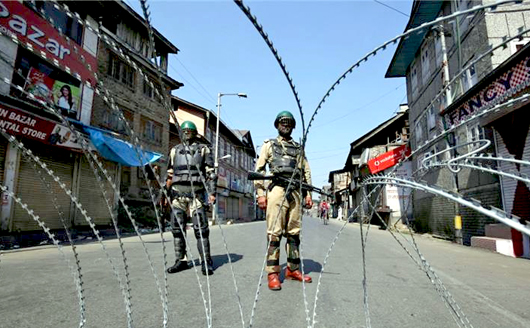Srinagar, Sep 13: Normal life was affected in Kashmir on Saturday due to the strike called by separatists against the high court order banning the sale of beef in the state.
All the shops, commercial establishments and educational institutions remained closed, while public transport was off the roads in Srinagar city and attendance in government offices was thin.
Reports said hundreds of police and paramilitary CRPF troopers patrolled streets of Srinagar and other volatile areas of Kashmir. Various roads in the city were blocked with rolls of concertina wires with security personnel manning the barricades.
The business hub of Lal Chowk in the heart of Srinagar city wore a deserted look. Similar reports were received from other parts of the valley. The call for the strike was issued by both factions of Hurriyat Conference and Jammu and Kashmir Liberation Front.
Reports said that clashes erupted in several areas of the valley with youth engaging in pitched battles with police and paramilitary forces. A police spokesperson said that the situation in valley remained peaceful with no untoward incident reported from anywhere.
Kashmir’s Grand Mufti had also appealed people to observe a complete shutdown on Saturday to protest what he termed as “interference in our religious affairs”. Authorities had detained separatist leaders either in their house or police stations to prevent them from leading protest rallies.
The strike had been called against Jammu and Kashmir High Court’s order banning cow and buffalo slaughter in the state.






Comments
Add new comment